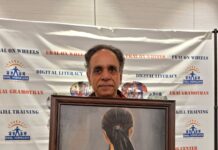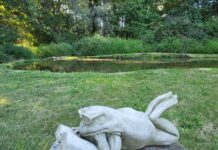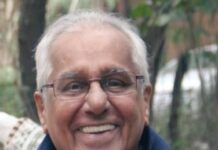By Upendra Mishra
Never underestimate your own power. You have an innate potential to become whatever you wish to become and accomplish anything in this life time.
If you understand the teachings of the Upanishads, you would gradually start to realize that you have this inborn potential within to transform yourself even into a God as long as your heart is pure.
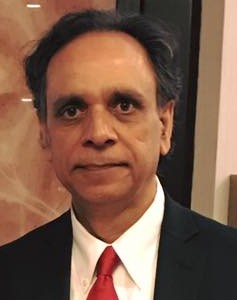
Sometimes circumstances can force a ship to sink, but at the root of it, we, the navigators, are responsible for its demise. With the power of self-discipline, self-mastery, willpower and strength of our character, however, we can overcome any obstacle.
Robin Sharma explains this beautifully in his book The Monk Who Sold His Ferrari (Jaico Publishing House, 2003). “Through the steel of discipline, you will forge a character rich with courage and peace,” he says. “Through the virtue of will, you are destined to rise to life’s highest ideal and live within a heavenly mansion filled with all that is good, joyful and vital. Without them, you are lost like a mariner without a compass, one who eventually sinks with his ship.”
How do you navigate yourself in today’s busy world? By realizing your inner self, your true Self, and this method is not new at all. It was discovered thousands of years ago. Stories after stories in Upanishads repeat this point. One of my favorite is of Shwetaketu, the son of a learned teacher Uddalaka, from the Chandogya Upanishad.
After studying Vedas for 12 years, Shwetaketu returns home with the pride of his intellectual knowledge. His father senses a layer of ego in his son, and asks: “Did you ask your teacher for that spiritual wisdom, which enables you to hear the unheard, think the un-thought, and know the unknown?”
Shwetaketu: “What is that wisdom, father?”
Then the father teaches Shwetaketu the importance of knowing the Supreme Self and how its lives within all of us, and by knowing this Self we know everything. Through various examples the father teaches that this Supreme Self is nothing but us.
When Shwetaketu’s appetite to know more about the Self does not diminish, he keeps asking his father: “Please, Father, tell me more about this Self.”
“Yes, dear one, I will,” Uddalaka said.
“As the rivers flowing east and west merge in the sea and become one with it, forgetting they were ever separate rivers; so do all creatures lose their separateness when they merge at last into pure being. There is nothing that does not come from him. Of everything he is the inmost Self. He is the truth; he is the Self supreme. You are that Shwetaketu, you are that.”
“Please, Father tell me more about this Self,” the son asked.
Father: “Yes, dear one, I will. Bring me a fruit from the nyagrodha (banyan) tree.”
Shwetaketu: “Here it is sir.”
Father: “Break it. What do you see?”
Shwetaketu: These seeds, Father, all exceedingly small.”
Father: “Break one. What do you see?”
Shwetaketu: “Nothing at all.”
Father: “That hidden essence you do not see, dear one, from that a whole nyagrodha tree will grow. There is nothing that does not come from him. Of everything he is the inmost Self. He is the truth. He is the Self Supreme. YOU ARE THAT, Shwetaketu, YOU ARE THAT.”
Once we know ourselves, our true nature and our meaningful goals of life, we stop pretending, we start focusing on our priorities, and most importantly we stop competing with others and start competing with ourselves.
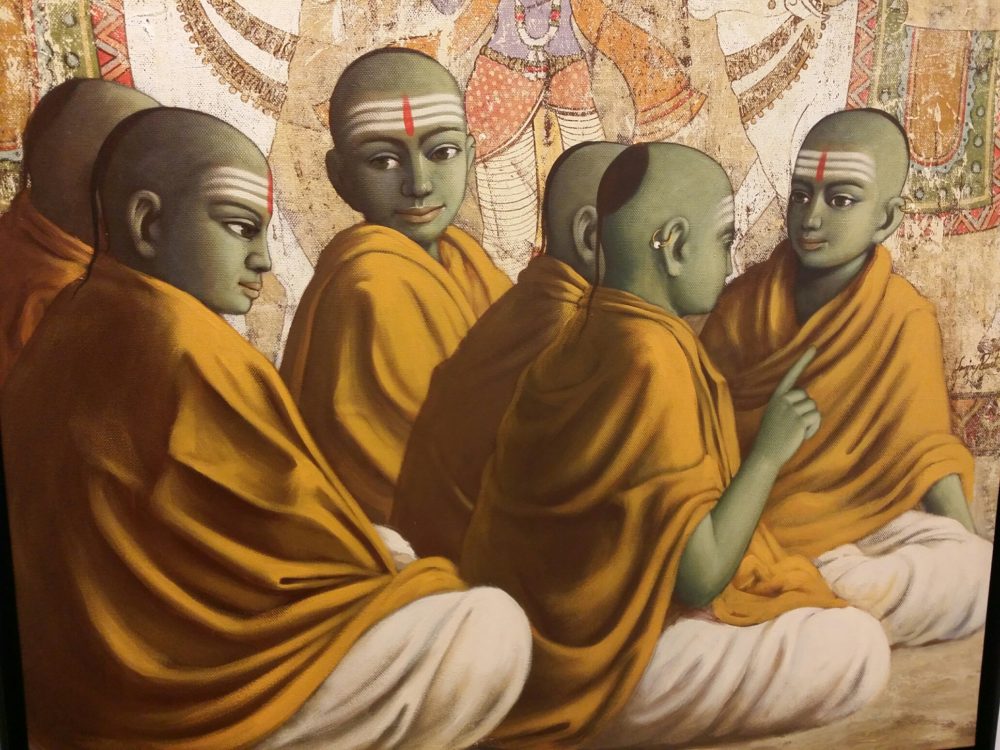
Why competing with yourself is the best thing you can do in order to accomplish everything? I remember an episode in the great Indian epic Mahabharata where Krishna explains this stunningly. This is a rough translation:
- Power or force is good.
- Strength (ability or capacity to be adequate) is more important than Power or Force.
- Bravery (courage of conviction) is more important than Strength.
How do we accomplish the three mentioned above?
- Power or force is strengthened by Muscle supremacy.
- Mind is strengthened by the Ability (competency), and
- Soul is strengthened by Bravery.
How do the above compete?
- Both Power and Ability compete with others.
- Bravery competes with none.
- Brave (a person with the courage of conviction) competes only with himself/herself.
Brave never makes any effort to prove his/her superiority over others. All he/she (Brave) does is tries to make himself/herself better each time.
(Mr. Mishra is managing partner of the Waltham, MA-based integrated inbound marketing and PR firm The Mishra Group. He writes about his three passions: marketing, scriptures and gardening.)






